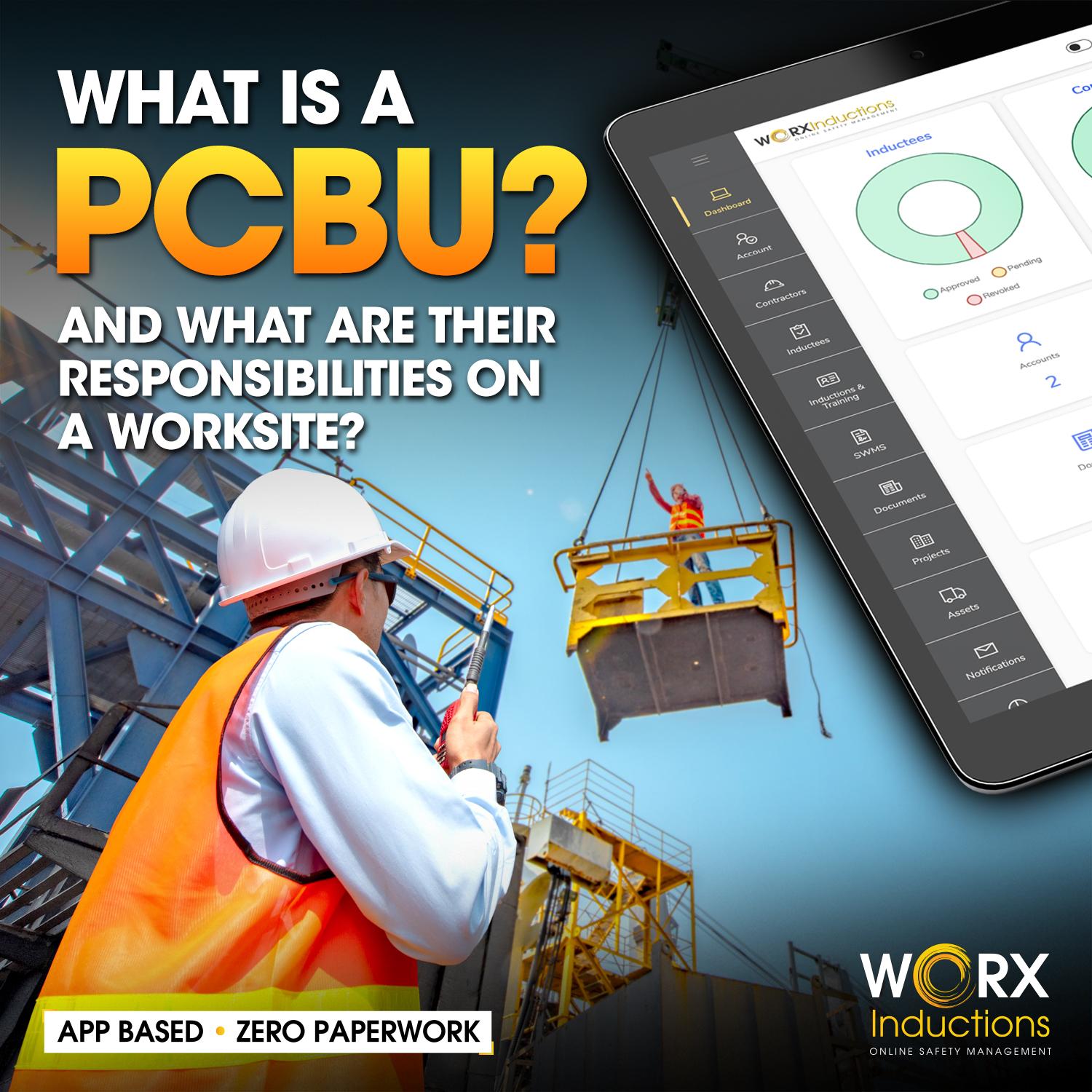
What is a PCBU and what are their responsibilities in a worksite?
What is a PCBU and what are their responsibilities on a worksite?
In today's rapidly evolving business landscape, workplace safety is a paramount concern for companies of all sizes. As businesses strive to meet legal obligations and provide a safe environment for their employees and stakeholders, the role of the Person Conducting a Business or Undertaking (PCBU) becomes crucial. The PCBU's primary duty of care, focusing on the imperative of ensuring the health and safety of individuals within the context of the business or undertaking. We'll also examine how Worx Inductions, an online safety management software for SMEs, can help companies fulfil their duty of care obligations effectively.
Understanding the PCBU's Primary Duty of Care
The concept of a PCBU, as defined in many jurisdictions, refers to any individual or entity that conducts a business or undertaking. This definition encompasses employers, business owners, self-employed individuals, and those in managerial roles. Regardless of the size or nature of the business, PCBUs have a primary duty of care to ensure, so far as is reasonably practicable, that the health and safety of other persons is not put at risk from work carried out as part of the conduct of the business or undertaking.
Understanding the non-transferable nature of PCBU duties is of utmost importance. It is crucial to realise that these duties cannot be modified or delegated to another person through contracts or agreements. Any attempt to do so, such as transferring WHS duties to a subcontractor via a contract provision, will be deemed invalid. It is worth noting that while PCBU duties cannot be transferred, it is possible to hold multiple duty roles. For instance, if you are self-employed or working as an individual contractor, you may simultaneously be considered a worker owed work health and safety duties and a PCBU responsible for fulfilling work health and safety obligations not only to yourself but also to others.
You are not considered to be a PCBU if you:
- are engaged solely as a worker or an officer
- are an elected member of a local authority
- are a volunteer association
- are a strata title body corporate responsible for common areas used only for residential purposes
A worker is anyone who carries out work for a PCBU, such as:
- an employee
- a contractor or sub-contractor
- an employee of a contractor or sub-contractor
- an employee of a labour hire company
- an apprentice or trainee
- a student gaining work experience
- an outworker
- a volunteer
This duty of care extends beyond the companies employees and includes contractors, visitors, customers, and any other individuals who may be affected by the work being conducted. By proactively identifying and managing risks, implementing safety measures, and promoting a culture of safety, PCBUs play a crucial role in preventing accidents, injuries, and other adverse outcomes in the workplace.
The Importance of Workplace Safety Management Software
While fulfilling the duty of care can seem like a complex task, technological advancements have greatly facilitated the management of workplace safety. One such solution is Worx Inductions, an online safety management software designed specifically for small and medium-sized enterprises (SMEs). Let's explore how this software can help PCBUs enhance their safety practices and ensure compliance with their duty of care obligations.
- Risk Identification and Assessment: Worx Inductions simplifies the process of identifying and assessing workplace hazards by providing a centralised platform to document, categorise, and evaluate potential risks. PCBUs can conduct comprehensive risk assessments, assign risk ratings, and implement control measures to mitigate identified hazards.
- Training and Compliance: Meeting compliance requirements is vital for any PCBU. Worx Inductions offers a streamlined approach to managing employee training, certifications, and inductions. The software enables the creation of customisable training modules, tracks completion, and provides automated reminders for retraining, ensuring that employees remain up to date with safety protocols.
- Incident Reporting and Management: In the event of an incident or near-miss, prompt reporting and effective management are essential. Worx Inductions simplifies incident reporting, allowing PCBUs to capture relevant information, conduct investigations, and implement corrective actions. This data-driven approach enhances incident management, promotes accountability, and enables continuous improvement in safety practices.
- Communication and Collaboration: Effective communication is crucial for maintaining a safe work environment. Worx Inductions facilitates the dissemination of safety information, policies, and procedures across the company. It provides a centralised communication hub, enabling PCBUs to collaborate with employees, contractors, and stakeholders to address safety concerns and foster a culture of safety.
As PCBUs, companies have a legal and moral obligation to prioritise the health and safety of all individuals affected by their operations. By leveraging tools like Worx Inductions, businesses can enhance their safety management practices and ensure compliance with their primary duty of care. This user-friendly software streamlines risk assessment, training, incident management, and communication processes, empowering PCBUs to create a safe and secure workplace environment.
Remember, workplace safety is not just a legal requirement; it is a shared responsibility that contributes to the overall well-being and productivity of employees. By investing in robust safety management systems like Worx Inductions, businesses can foster a culture of safety, protect their workforce, and enhance their reputation as responsible and caring company.
Sign up today by speaking to our team about how Worx could be implemented into your company by making contact, or if you prefer, you can book an online demo.
